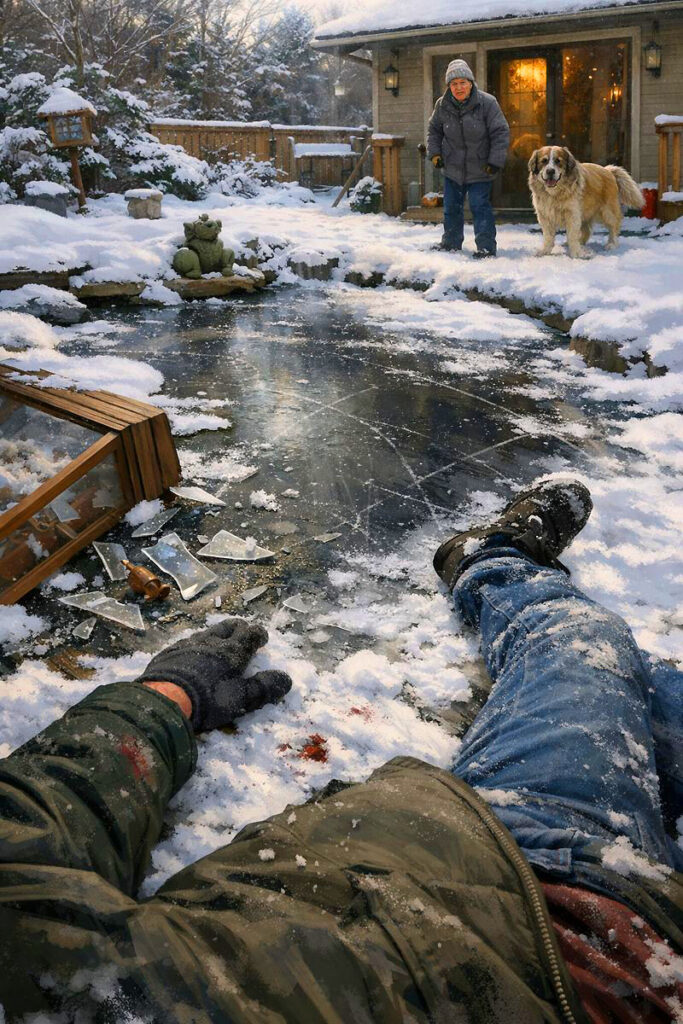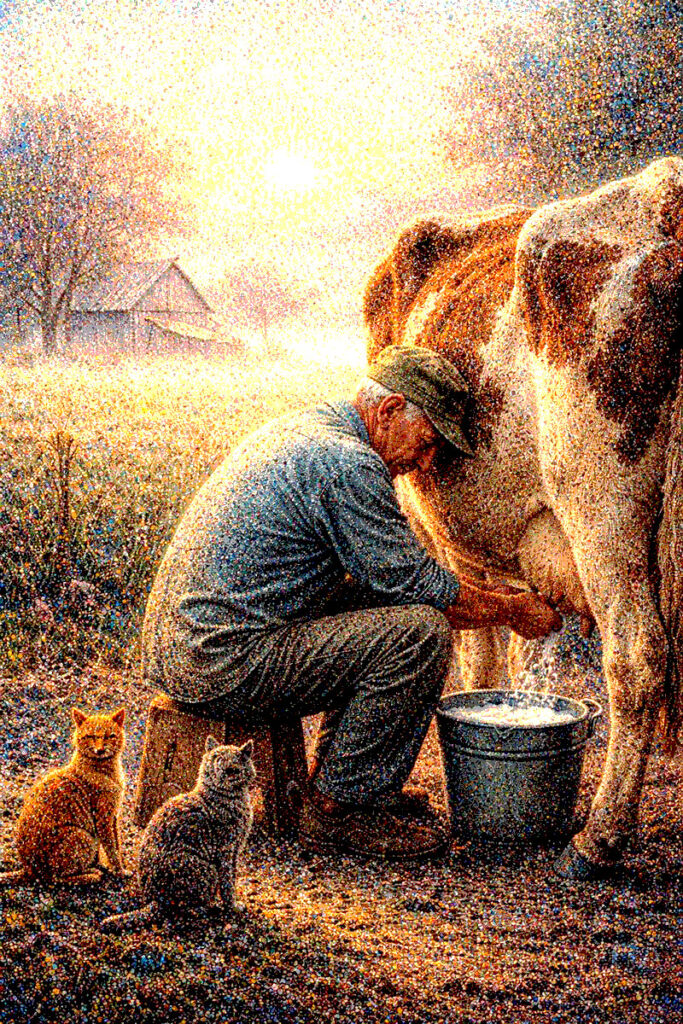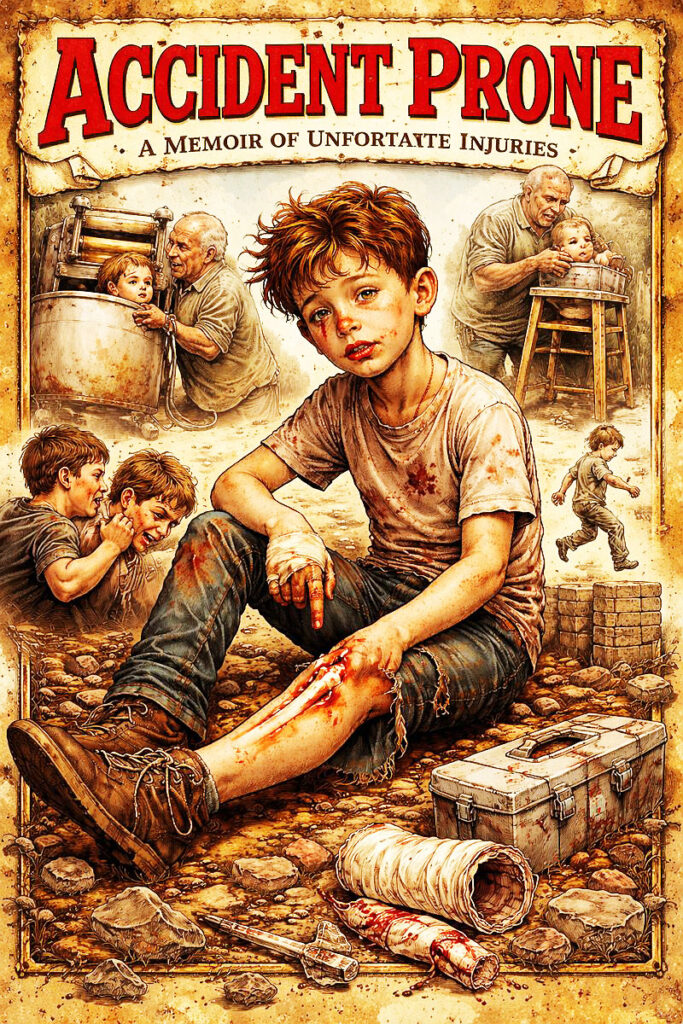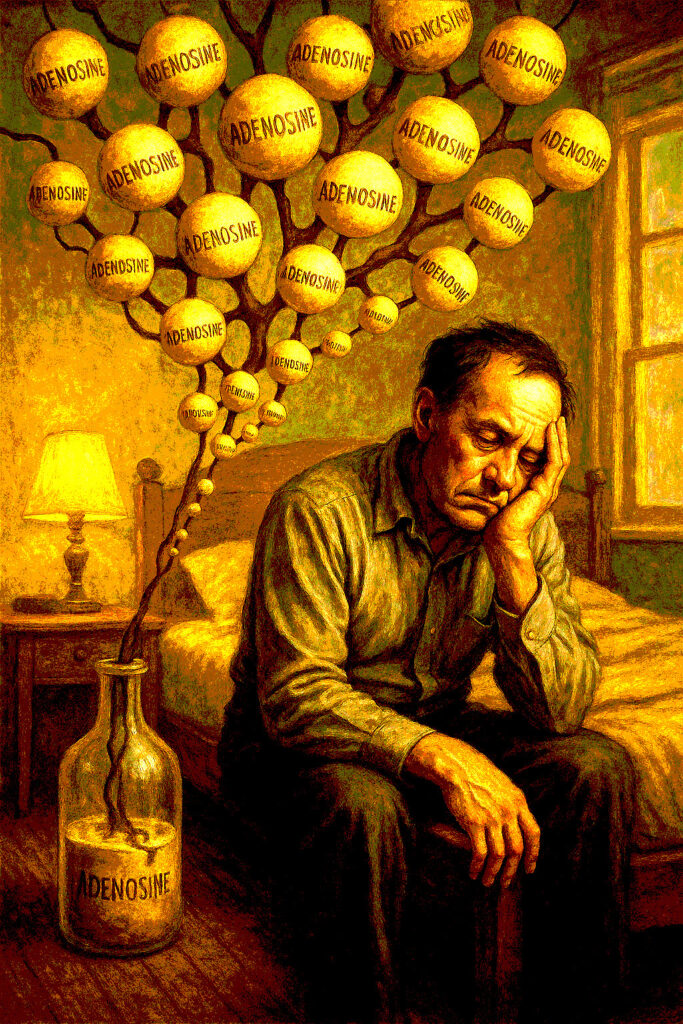January 20, 2026
No Comments
No 3rd-act gun on the mantel, but there is black ice beneath the snow. Here’s my past 3 year go, some of me left, sum of the flow.
Was going to toss dead organics over hill for the critters when inner head said “Proper 8-fold path is garbage in garbage can,” so go over and properly dispose and on way back step on the slanted-side of Lady’s snow-covered dead fish pond which is black ice. Go down, hard. Think a moment. Things seem to work. Get up. One step, WHAM bam down hard again, other side. Not sure I’m getting up this time. Cold sweat. Nausea. Creak back to house. Lady asks “You alright?” Donno, I rasp, figure out. Maybe.
That was but prologue.
Month later lift 5-gallon bucket of water from sink for my 3 illegal pot plants and pull my right bicep. Doctor moves it round, says I’ll be fine in 5 weeks. 4 weeks later walking 140 pound dog, he sees loose dog and jerks my arm sideways, massive pain, me thinking he reinjured my bicep. Figure I’ll be fine in 5 weeks. 4 weeks later same loose dog leads to another sideways jerk which reinjures my arm. So I wait 5 more weeks, not knowing that one or both times the dog had broken my arm, and it was healing right-angle wrong. For 10 months carried it crooked, had no use of it.
You’d think one would know they’d broken their arm.
Then fortunately I shatter it. Bit of slapstick smash-stick. Took dog to dog bath, he poops on floor, I scurry for poop bag down 2 steps and the non-slip rubber toe of my sneaker sticks fast to the non-slip rubber mat of the step, and I fly 5-foot across floor into wall and display case shattering case and my left humerus. Massive cold sweat nausea as I sit in debris telling Lady since we’re here she may as well wash the dog. She tries, but he’s too large for their facilities so take dog home and me to E.R. where they say shattered arm previously broken and healed wrong. They slap me into hospital and put 2 metal plates to hold arm together.
While X-Raying and CATscanning and MRIing to see how bad it was they saw a lump on my lung, got concerned, checked it out, said nothing to worry about, BUT there’s something peeking over your left kidney looks a bit odd.
Aggressive sarcoma, big enough to move my kidney aside, half my stomach up into my chest. 11 hour operation took it and kidney and bits and pieces and put me in hospital bed 9 days long. When I got up to clean my area, doc sez after one of these, you either get out of bed, or you don’t.
11 months later helping dying dog up steps, I thought I’d pulled a muscle in my back. Trouble walking for a month, finally fades. After next MRI doc says looks like you collapsed a disc. Of course. Who writes this stuff.
Leaving that doctor session, come home step on black ice driveway, stop, think no way can I walk this, slow turn left for lawn and safety and WHAPPO faceplant, split forehead 3rd-eye open and break neck at top the day before Valentine’s Day, which is when I get out of E.R.
Doc and I decide to let that go since I’m still mobile and adding more screws to the 2 metal rods in my neck would up my immobility.
Then big dog dies. We get puppy. Puppy and no teeth for me. While Cookie is sleep depriving me for 4 months with her night needs, dentist pulls my last 3 teeth and gives me unusable lower plate so for months it’s little sleep, bad eating, lost 12 pounds, back down to near cancer weight, the stress gives me shingles, pustules from left of breast bone across nightmare-tender nipple on under ever-angry armpit and around back to spine. Itch itch itch.
I heal, 72 pound puppy eats 1/3 of a joint I left out, gets hyper, whines, so I take her out back and let her run. She madly races large ovals around me and mid-loop turns, heads straight for me, leaps, and smashes into my chest, knocking me down where I land on a brick and break my other humerus. Puppy sees me on the ground, barks “O boy, let’s play,” and leaps on me, jumping up and down in joy.
I walk around with wobbly arm for 3 weeks before they cut me open for another metal plate. Went in for 7-hour outpatient operation and came home 54 hours later, deemed too weak to walk. Less and less of me left to recover each recuperation.
My big break was early 80;s walking up a hill at night to look at our new art installation where I fall down the hill, hit asphalt road, bounced, break both wrists and both elbows. That was a doozy. Got up, seemed to work, drove my collaborator home, went to sleep, next morning took hour to put on shoes, socks, pants, t-shirt, drove to hospital, they X-Rayed me, handed me the X-Rays saying no doctor here now so drive another 3 miles to another hospital where a doctor tried to put both arms in casts, me saying doc I live alone, how am I going to wipe myself, so 1 arm cast, other let hang.
That week had to change flat tire in rain, two broken arms, jack slow sinking into mud . . . took an hour, and many tears which led to laughter.
And on and on.
12 years earlier combined white wine, weed, LSD, and my motorcycle and took a corner too fast, slid sideways into a driveway speed bump, flew up in air, bounced when I hit again, and found myself face down in a mudpuddle when I regained consciousness, the helmet holding my nose just above the surface. Nasty gash in helmet as well, so it saved me twice. An old man in pajamas appeared in the night from nowhere, bent down, picked up the bottle of white wine I still held between my thighs, and said “You’re in enough trouble” as he poured it out and tossed it. Cops came, kept insisting I should go to the hospital, me saying no no no until his partner sang out, “Hey, You need to see this” – my bike plate was out of date and I’d taken the year tag off, cut it up and collaged it back as the correct year, so I said yup you’re right I need to get to the hospital, where they found broken collar bone, broken ribs, cracked pelvis . . . cost me $50 for expired license, and one dead 1977 750 Kawasaki. Talked myself out of hospital early so I could see a Willie Nelson Emmylou Harris concert. That was a sweet year.
There’s more of course, but for magic, there’s 9-year me running the Bitterroot Mountains when I saw a new block foundation wall and jumped it, came down on 2nd wall hidden behind, had trouble walking, pulled up pantleg and saw my shin flesh below knee had been cut in a 5″ V down to the bone, bone undamaged, no blood yet . . . my femur gleamed an unreal fluorescent white in the sunlight so I slowly took my finger and touched it. Me and skeleton been talking ever since.
You pay for what you get, and I got a lot
– Smith, 1.20.206
image me&Chat





